Peanuts have long been celebrated for their versatility, flavor, and health benefits. Whether you enjoy them as a snack on their own, incorporate them into your cooking, or indulge in peanut butter, these little legumes pack a powerful punch of nutrients and taste. Let’s explore the wonderful world of peanuts and discover why they deserve a special place in your pantry. Peanuts, botanically classified as Arachis hypogaea, are not actually nuts, but legumes that belong to the same family as beans and lentils. They are grown underground, making them distinct from tree nuts like almonds and walnuts. Despite their misleading name, peanuts are a highly nutritious food that offers a wide range of health benefits. One of the most notable benefits of peanuts is their high nutrient content. They are an excellent source of plant-based protein, making them a valuable addition to vegetarian and vegan diets. Just a one-ounce serving of peanuts contains around 7 grams of protein, making them a convenient and tasty way to boost your protein intake. In addition to protein, peanuts are rich in healthy fats, particularly monounsaturated and polyunsaturated fats. These fats are known to support heart health by reducing cholesterol levels and lowering the risk of cardiovascular disease. Regular consumption of peanuts has been associated with a decreased risk of heart disease, making them a heart-friendly snack choice. Peanuts are also a good source of fiber, which plays a crucial role in digestive health and weight management. Fiber helps to promote satiety, keeping you feeling full and satisfied after a meal. This can be beneficial for those looking to manage their weight or control their appetite.
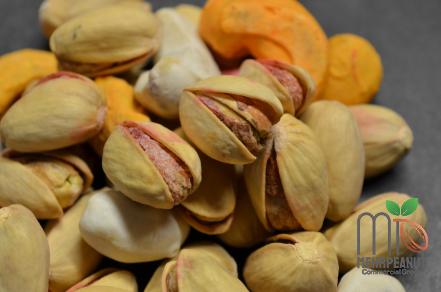
.
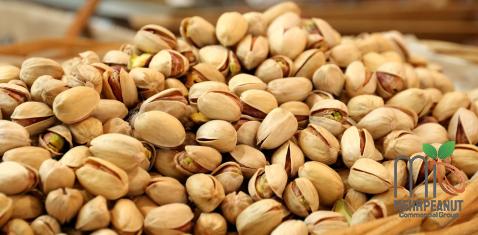 Furthermore, the fiber in peanuts supports healthy digestion by promoting regular bowel movements and preventing constipation. Another standout nutrient in peanuts is vitamin E, a powerful antioxidant that helps to protect your cells from damage caused by free radicals. Antioxidants play a key role in reducing inflammation and supporting overall health. Vitamin E also contributes to skin health by promoting collagen production and protecting against UV damage, making peanuts a beauty-boosting snack from the inside out. When it comes to minerals, peanuts are a good source of magnesium, phosphorus, and potassium. Magnesium is essential for muscle function and energy production, while phosphorus supports bone health and energy metabolism. Potassium plays a vital role in maintaining healthy blood pressure and electrolyte balance. By enjoying peanuts as part of a balanced diet, you can help ensure that your body receives these important minerals. Beyond their impressive nutritional profile, peanuts are also incredibly versatile in the kitchen. Whether you prefer them raw, roasted, salted, or flavored, there are countless ways to enjoy peanuts in your meals and snacks. Peanut butter, a beloved spread made from ground peanuts, is a pantry staple in many households. It can be slathered on toast, drizzled over oatmeal, or used as a dip for fruit and vegetables. Peanuts can also be used in cooking and baking to add flavor and texture to a variety of dishes. From savory stir-fries and curries to sweet treats like peanut butter cookies and chocolate peanut butter cups, there is no shortage of delicious recipes that feature peanuts as a star ingredient. Their rich, nutty flavor pairs well with both sweet and savory ingredients, making them a versatile addition to your culinary repertoire. If you’re looking for a convenient and satisfying snack on the go, peanuts are an excellent choice. Portable and non-perishable, they can be easily packed in your bag or lunchbox for a quick and nutritious bite when hunger strikes.
Furthermore, the fiber in peanuts supports healthy digestion by promoting regular bowel movements and preventing constipation. Another standout nutrient in peanuts is vitamin E, a powerful antioxidant that helps to protect your cells from damage caused by free radicals. Antioxidants play a key role in reducing inflammation and supporting overall health. Vitamin E also contributes to skin health by promoting collagen production and protecting against UV damage, making peanuts a beauty-boosting snack from the inside out. When it comes to minerals, peanuts are a good source of magnesium, phosphorus, and potassium. Magnesium is essential for muscle function and energy production, while phosphorus supports bone health and energy metabolism. Potassium plays a vital role in maintaining healthy blood pressure and electrolyte balance. By enjoying peanuts as part of a balanced diet, you can help ensure that your body receives these important minerals. Beyond their impressive nutritional profile, peanuts are also incredibly versatile in the kitchen. Whether you prefer them raw, roasted, salted, or flavored, there are countless ways to enjoy peanuts in your meals and snacks. Peanut butter, a beloved spread made from ground peanuts, is a pantry staple in many households. It can be slathered on toast, drizzled over oatmeal, or used as a dip for fruit and vegetables. Peanuts can also be used in cooking and baking to add flavor and texture to a variety of dishes. From savory stir-fries and curries to sweet treats like peanut butter cookies and chocolate peanut butter cups, there is no shortage of delicious recipes that feature peanuts as a star ingredient. Their rich, nutty flavor pairs well with both sweet and savory ingredients, making them a versatile addition to your culinary repertoire. If you’re looking for a convenient and satisfying snack on the go, peanuts are an excellent choice. Portable and non-perishable, they can be easily packed in your bag or lunchbox for a quick and nutritious bite when hunger strikes.
..
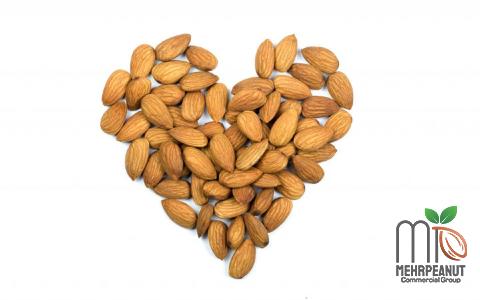 Whether you’re hiking, working, or traveling, a handful of peanuts can provide a satisfying crunch and energy boost to keep you going throughout the day. In conclusion, peanuts are a nutrient-dense, flavorful, and versatile food that deserves a place in your pantry. From their high protein content and heart-healthy fats to their fiber, vitamins, and minerals, peanuts offer a wide array of health benefits. Whether you enjoy them as a snack, a spread, or a cooking ingredient, there are countless ways to incorporate peanuts into your diet and elevate your culinary creations. So next time you’re looking for a delicious and nutritious addition to your meals, consider reaching for some peanuts and savor the goodness they have to offer. Peanuts are not just a tasty and nutritious snack; they are also deeply rooted in cultural traditions and culinary practices around the world. From classic peanut sauces in Asian cuisine to peanut stews in African cooking, peanuts play a prominent role in a wide range of dishes that have been passed down through generations. In Asian cuisine, peanuts are often used to make rich and flavorful sauces that add depth and texture to dishes. Peanut sauce, made from ground peanuts, soy sauce, garlic, and other seasonings, is a popular condiment served with dishes like satay skewers, noodles, and salads. The creamy and nutty flavor of peanut sauce pairs beautifully with a variety of ingredients, creating a harmonious balance of sweet, savory, and spicy notes. In African cuisine, peanuts are commonly used to make hearty and comforting stews that are enjoyed across the continent. Groundnut stew, a traditional dish in West Africa, features peanuts as a key ingredient along with tomatoes, onions, and spices. The creamy texture and nutty flavor of the peanuts infuse the stew with a rich and satisfying taste that is often served with rice, couscous, or flatbread.
Whether you’re hiking, working, or traveling, a handful of peanuts can provide a satisfying crunch and energy boost to keep you going throughout the day. In conclusion, peanuts are a nutrient-dense, flavorful, and versatile food that deserves a place in your pantry. From their high protein content and heart-healthy fats to their fiber, vitamins, and minerals, peanuts offer a wide array of health benefits. Whether you enjoy them as a snack, a spread, or a cooking ingredient, there are countless ways to incorporate peanuts into your diet and elevate your culinary creations. So next time you’re looking for a delicious and nutritious addition to your meals, consider reaching for some peanuts and savor the goodness they have to offer. Peanuts are not just a tasty and nutritious snack; they are also deeply rooted in cultural traditions and culinary practices around the world. From classic peanut sauces in Asian cuisine to peanut stews in African cooking, peanuts play a prominent role in a wide range of dishes that have been passed down through generations. In Asian cuisine, peanuts are often used to make rich and flavorful sauces that add depth and texture to dishes. Peanut sauce, made from ground peanuts, soy sauce, garlic, and other seasonings, is a popular condiment served with dishes like satay skewers, noodles, and salads. The creamy and nutty flavor of peanut sauce pairs beautifully with a variety of ingredients, creating a harmonious balance of sweet, savory, and spicy notes. In African cuisine, peanuts are commonly used to make hearty and comforting stews that are enjoyed across the continent. Groundnut stew, a traditional dish in West Africa, features peanuts as a key ingredient along with tomatoes, onions, and spices. The creamy texture and nutty flavor of the peanuts infuse the stew with a rich and satisfying taste that is often served with rice, couscous, or flatbread.
…
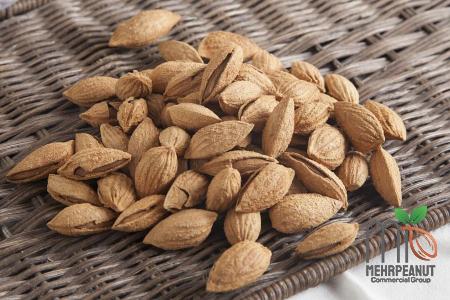 In the Americas, peanuts are perhaps most famously enjoyed in the form of peanut butter, a smooth or crunchy spread made from roasted peanuts. Peanut butter is a beloved pantry staple that can be used in a wide range of dishes, from classic peanut butter and jelly sandwiches to decadent peanut butter desserts. Its creamy texture and versatile flavor make it a popular choice for both sweet and savory recipes. Beyond the culinary world, peanuts have also played a significant role in global agriculture and trade. Originating in South America, peanuts were introduced to Africa and Asia by explorers and traders, where they quickly became a staple crop due to their adaptability and high nutritional value. Today, peanuts are grown in countries around the world, with China, India, and the United States being the largest producers. In addition to their culinary and cultural significance, peanuts have also been the subject of scientific research that highlights their potential health benefits. Studies have shown that regular consumption of peanuts may help reduce the risk of chronic diseases such as heart disease, diabetes, and certain types of cancer. The combination of protein, healthy fats, fiber, vitamins, and minerals in peanuts makes them a valuable addition to a balanced diet that promotes overall health and well-being. When purchasing peanuts, it’s important to choose high-quality, fresh, and ideally organic varieties to ensure that you are getting the most nutrients and flavor from this versatile legume. Whether you prefer raw or roasted peanuts, whole or ground, there are many options available in stores and online to suit your taste preferences and dietary needs. In conclusion, peanuts are a superfood that offers a winning combination of taste, nutrition, and versatility. Whether you enjoy them as a snack, a cooking ingredient, or a condiment, peanuts can add a delicious and nutritious element to your meals and snacks. From their protein and healthy fats to their fiber, vitamins, and minerals, peanuts boast an impressive array of health benefits that make them a standout choice for anyone looking to nourish their body and satisfy their taste buds. So go ahead, embrace the power of peanuts and discover the many ways you can enjoy this humble legume in your culinary adventures.
In the Americas, peanuts are perhaps most famously enjoyed in the form of peanut butter, a smooth or crunchy spread made from roasted peanuts. Peanut butter is a beloved pantry staple that can be used in a wide range of dishes, from classic peanut butter and jelly sandwiches to decadent peanut butter desserts. Its creamy texture and versatile flavor make it a popular choice for both sweet and savory recipes. Beyond the culinary world, peanuts have also played a significant role in global agriculture and trade. Originating in South America, peanuts were introduced to Africa and Asia by explorers and traders, where they quickly became a staple crop due to their adaptability and high nutritional value. Today, peanuts are grown in countries around the world, with China, India, and the United States being the largest producers. In addition to their culinary and cultural significance, peanuts have also been the subject of scientific research that highlights their potential health benefits. Studies have shown that regular consumption of peanuts may help reduce the risk of chronic diseases such as heart disease, diabetes, and certain types of cancer. The combination of protein, healthy fats, fiber, vitamins, and minerals in peanuts makes them a valuable addition to a balanced diet that promotes overall health and well-being. When purchasing peanuts, it’s important to choose high-quality, fresh, and ideally organic varieties to ensure that you are getting the most nutrients and flavor from this versatile legume. Whether you prefer raw or roasted peanuts, whole or ground, there are many options available in stores and online to suit your taste preferences and dietary needs. In conclusion, peanuts are a superfood that offers a winning combination of taste, nutrition, and versatility. Whether you enjoy them as a snack, a cooking ingredient, or a condiment, peanuts can add a delicious and nutritious element to your meals and snacks. From their protein and healthy fats to their fiber, vitamins, and minerals, peanuts boast an impressive array of health benefits that make them a standout choice for anyone looking to nourish their body and satisfy their taste buds. So go ahead, embrace the power of peanuts and discover the many ways you can enjoy this humble legume in your culinary adventures.
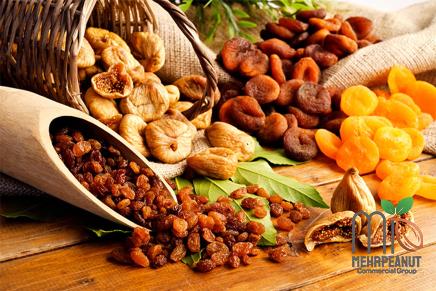
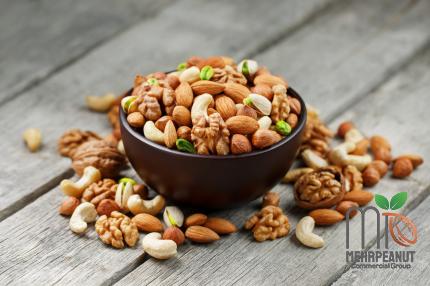
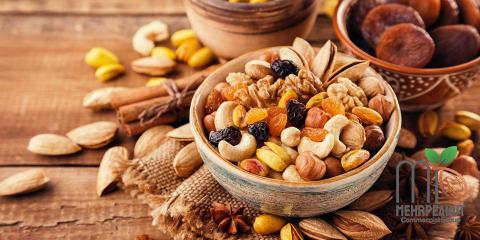
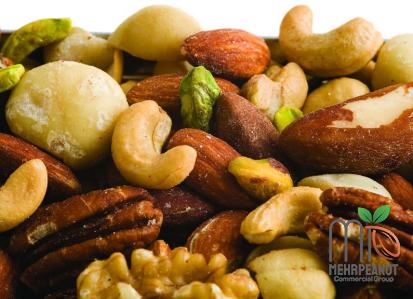
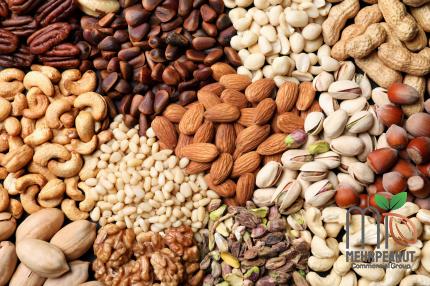
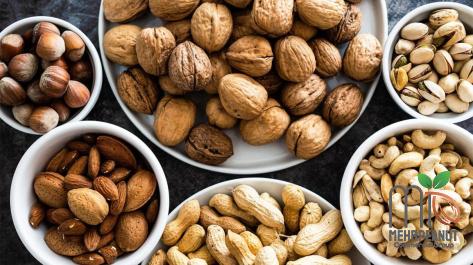
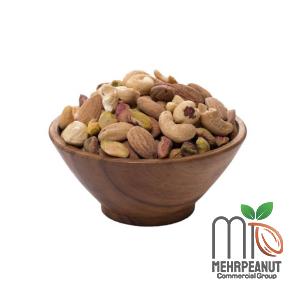
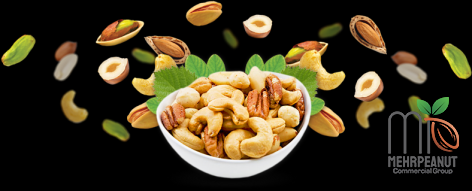
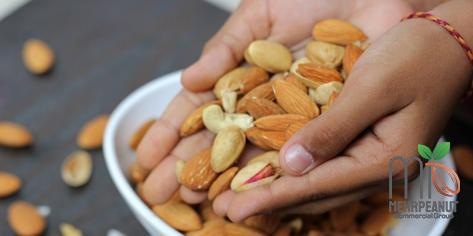
Your comment submitted.